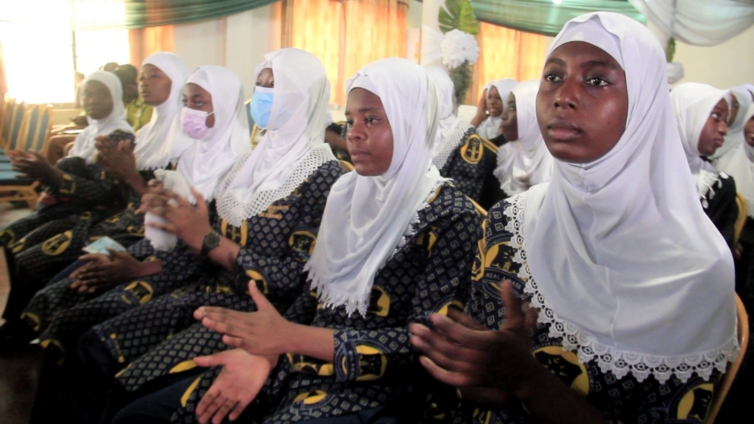Grace Ano Abbey, a Principal Executive Officer at the Department of Children in the Ministry of Gender, Children, and Social Protection, has identified poverty and irresponsible parenting as significant obstacles to the academic performance of girls in schools.
Abbey emphasized that the inability of some parents to monitor and support their children, combined with economic challenges, negatively impacts the educational journey of many girls.
Speaking at the 14th Annual Conference of the Federation of Muslim Women's Association in Kumasi, Abbey highlighted the struggle faced by numerous girls in affording basic learning materials, which, in turn, has a substantial effect on their academic work.

The Ministry official underscored the importance of addressing these challenges to ensure that all girls have equal opportunities for academic success.
"The major challenges we have when it comes to girls is poverty, the basic things they need to go to school, they don't get it, some parents cannot afford those basic things," she said.
Abbey emphasized that some parents neglect their duty to supervise or monitor their children's education, showing indifference to whether their children attend school or not.
Abbey urged parents to actively support their daughters by providing essential items such as sanitary pads and learning materials. She stressed that these contributions are crucial for improving the academic performance of girls.

Additionally, Grace advised young girls to prioritize their education over excessive use of social media, highlighting the potential hindrance it poses to academic progress. Encouraging a focus on learning, Abbey emphasized the role of responsible parenting in creating an environment conducive to educational success for girls.
"Social media is always available, but they should focus on their studies so that they can excel and pursue careers as doctors and lawyers. Then, they can use social media more effectively," she added.
Hajia Hajara Mohammed Rufai, a Commission Member of the National Commission for Civil Education, underscored the adverse impact of insufficient educational facilities in the inner cities of Zongo communities on the academic development of children.
According to her, the absence of proper educational institutions poses a significant obstacle to the learning opportunities available to children in these areas.
Hajara Mohammed Rufai also pointed out additional challenges, including the lack of motivation and mentorship, which seriously deter children, especially girls, in Zongo areas from attending school. These issues, she emphasized, contribute to hindering the academic progress of children and underscored the need for concerted efforts to address these barriers to education in Zongo communities.
Latest Stories
-
Agbodza warns cement dealers over high prices
3 minutes -
Renovation of Atta Mills Memorial Library in the offing – Mahama
5 minutes -
Case involving slain immigration officer adjourned to August 8
11 minutes -
‘I did my best’: Teacher dies after rescuing 20 kids from Bangladesh plane crash
14 minutes -
Starmer and Modi sign £6bn India-UK trade deal
14 minutes -
Asiedu Nketia: I believe Prof. Mills is enjoying peace in his grave
17 minutes -
Stop funding foreign scholarships; Rechannel resources into local universities – Prof. Awandare to gov’t
20 minutes -
Afriy David drops new Afro-Gospel EP ‘God and Higher Life’
27 minutes -
Mid-year budget will rebuild domestic confidence- Prof Khalid
31 minutes -
Energy Ministry dismisses reports of aviation fuel shortage in Ghana
33 minutes -
Scandals and Reform in Ghana’s Security Sector: Opportunities arising from Revelations by Ministers for the Interior and Defence (PART I)
50 minutes -
Ghana to host Global Africa Diaspora Investment Summit in December
53 minutes -
Deputy Finance Minister rejects Minority’s claim of not spending
1 hour -
UNICEF commends Ghana’s timely financing of immunisation program
1 hour -
Fameye paid me GH¢5,000 to twerk to his song – Akuapem Poloo
2 hours

